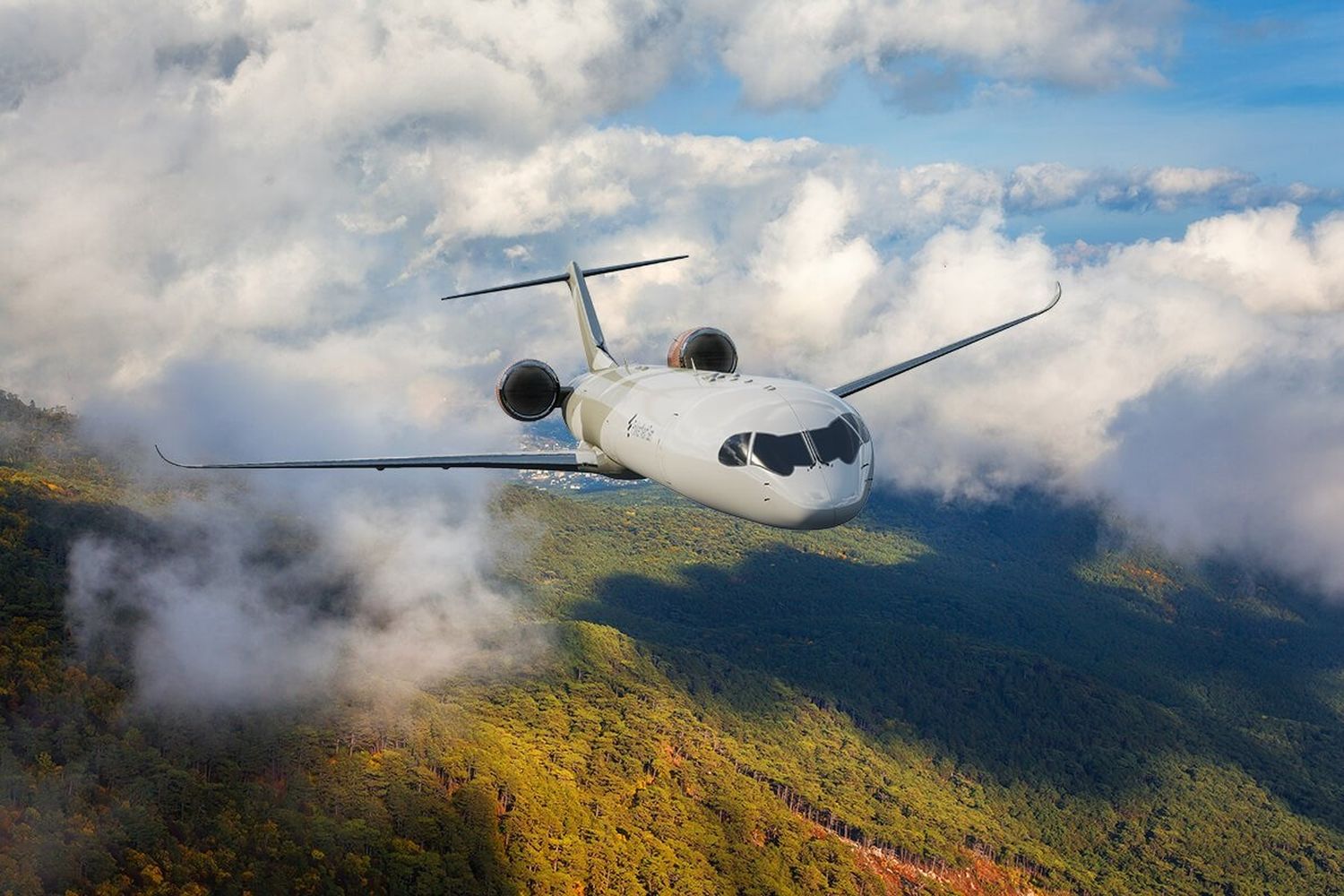Dutch aircraft manufacturer Fokker unveiled the design and construction project for its future generation of low-emission aircraft, known as Next Gen. The company unveiled a type powered by the combustion of liquid hydrogen that could enter service in the middle of next decade.
«We are designing and building a totally new aircraft that will secure the future of our industry by making green aviation accessible», said Fokker.
See also: Universal Hydrogen completes successful first flight of its hydrogen-powered Dash 8-300
The Fokker Next Gen
According to the company, the new aircraft will have a range of around 2.500 kilometres (which would allow it to cover flights on virtually any intra-European route) with a considerable reduction in the environmental impact of its operations compared to previous models, thanks to the implementation of new-generation technology.

The aircraft will operate on liquid hydrogen, as well as from a blend of fossil fuel and sustainable aviation fuel (SAF). «This will make it more versatile and adaptable», the company said.
To this end, it will feature a state-of-the-art hydrogen storage, distribution and direct combustion system, which will be connected to two engines located in the rear section of the fuselage. Unlike other similar developments, it will dispense with electric hydrogen fuel cells.
In addition, the Fokker Next Gen will incorporate more environmentally friendly manufacturing materials in its design and flexible display panels on the cabin roof that will allow operators to offer a more personalised travel experience to their passengers.

Development timeline
Fokker will receive funding of 25 million euros from the Dutch government and a grant from the European Union for the promotion of sustainable alternatives for the aviation industry. However, the latter amount has not yet been disclosed.
Currently, the company is already working to convert a Fokker 100 to allow it to operate on liquid hydrogen and other sustainable fuels. Conceptual designs will be carried out during 2023 to advance the installation of such propulsion systems.
Fokker will continue design studies for the development of the Next Gen in 2024, when it plans to seal cooperative partnerships with engine manufacturers. Later, possibly in 2026, the powerplant design would be advanced and the first ground test of the converted aircraft would be completed, with the first flight test the following year.
Also in 2027, the first conceptual design phase of the Fokker Next Gen would be completed, and a critical review of the desing would follow three years later. The first aircraft would be assembled in 2032 and the maiden flight of the prototype is scheduled for 2033.
If all goes according to plan (which is rare for this type of project), deliveries to the first customers and entry into commercial service could be in 2035, the same year in which Airbus plans to introduce its ZEROe hybrid aircraft.
See also: Airbus will test its hydrogen roadmap in New Zealand


Comentarios
Para comentar, debés estar registrado
Por favor, iniciá sesión